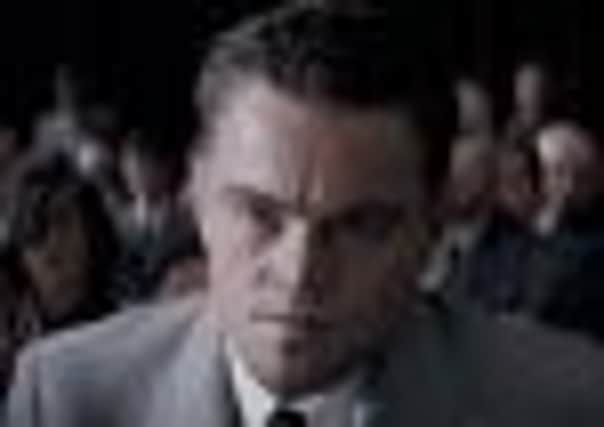Review: J. Edgar (15) ****


Clint Eastwood’s latest is a biopic that attempts to delve deep but still only scratches the surface of this odd, wifeless, friendless teetotaller and snob who was also deeply repressed, rigid, inflexible and dogmatic. He built the FBI in his own image.
J. Edgar establishes Hoover’s character from the off, courtesy of his relationship with his mother – an inspired piece of casting that sees Dame Judi Dench collaborating with Eastwood for the first time. Mama is a thrusting force in his life and as the film flashes back and forth we see her influence and its legacy.
Advertisement
Hide AdAdvertisement
Hide AdAs personified by Leonardo DiCaprio, Hoover’s association with the FBI begins during its fledgling years of forensics, principally via the case of the Lindbergh baby, the infant kidnapped and later found, abandoned and decomposed, within sight of the aviator’s home.
Eastwood’s film has a lot to cram in to its 137 minutes’ running time. As well as Hoover’s intense association with his mother, it presents his relationship with deputy Clyde Tolson (Armie Hammer) as homosexual, though celibate and hidden. A key reason for this may be found in his mother’s damning comment: “I’d rather have a dead son than a daffodil.”
After Revolutionary Road DiCaprio appears to have turned the corner in his willingness to attempt wholly characterful roles. Hoover is a conundrum and DiCaprio plays him as such.
Various episodes stand out, not least his quasi-Sherlockian approach to investigation, his capricious approach to selecting agents, his lifelong battles against Communism, terrorism, popular criminals like John Dillinger and his desperate need to be number one. A self-publicising glory hunter, he wanted to be a star and nothing would stand in his way.
Advertisement
Hide AdAdvertisement
Hide AdIf DiCaprio slips, it is in his failure to modulate his speech as the older Hoover. But this is solid stuff, not least in its attempts to cover all bases – even down to considering accusations that Hoover was a cross-dresser, picturing the grieving boy in his mother’s dress after her death.